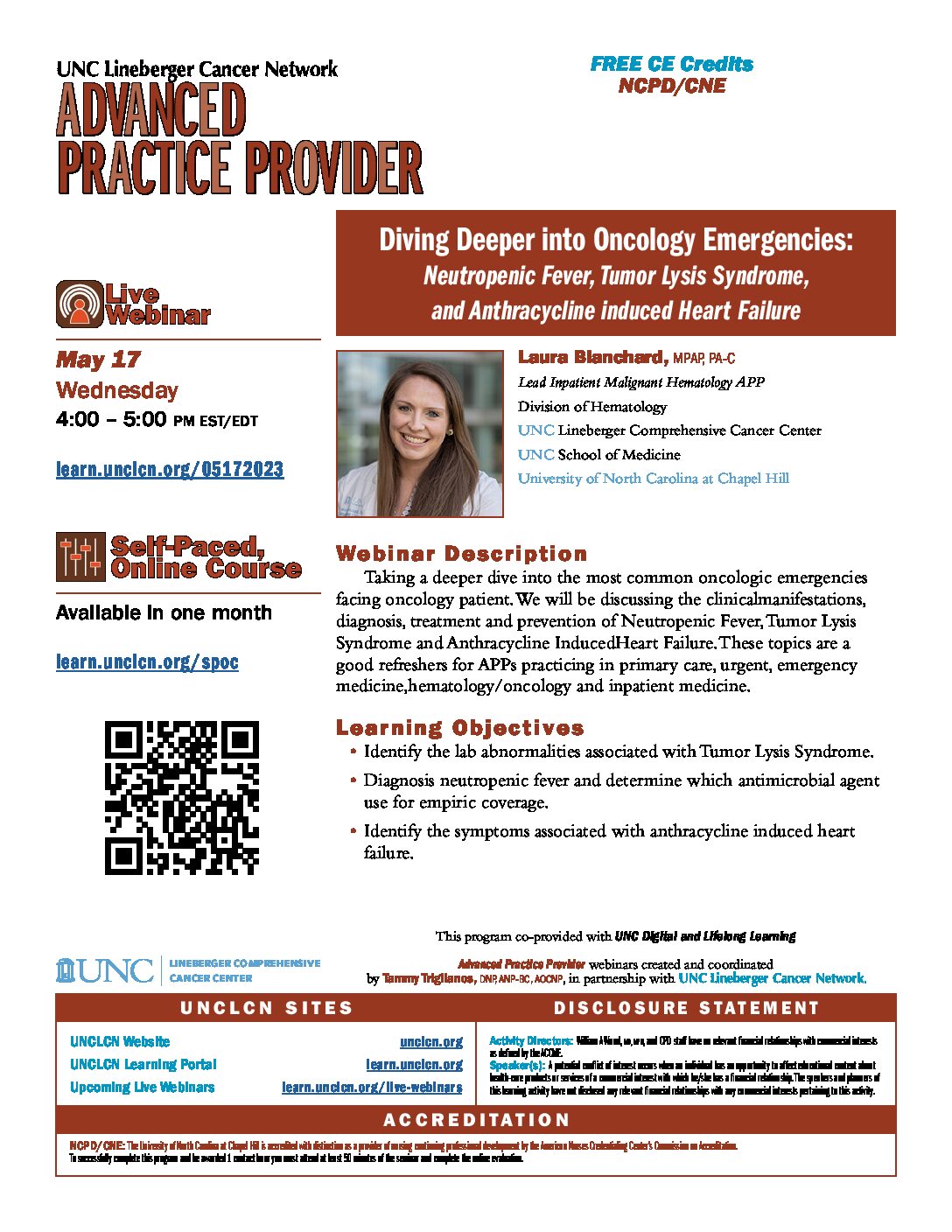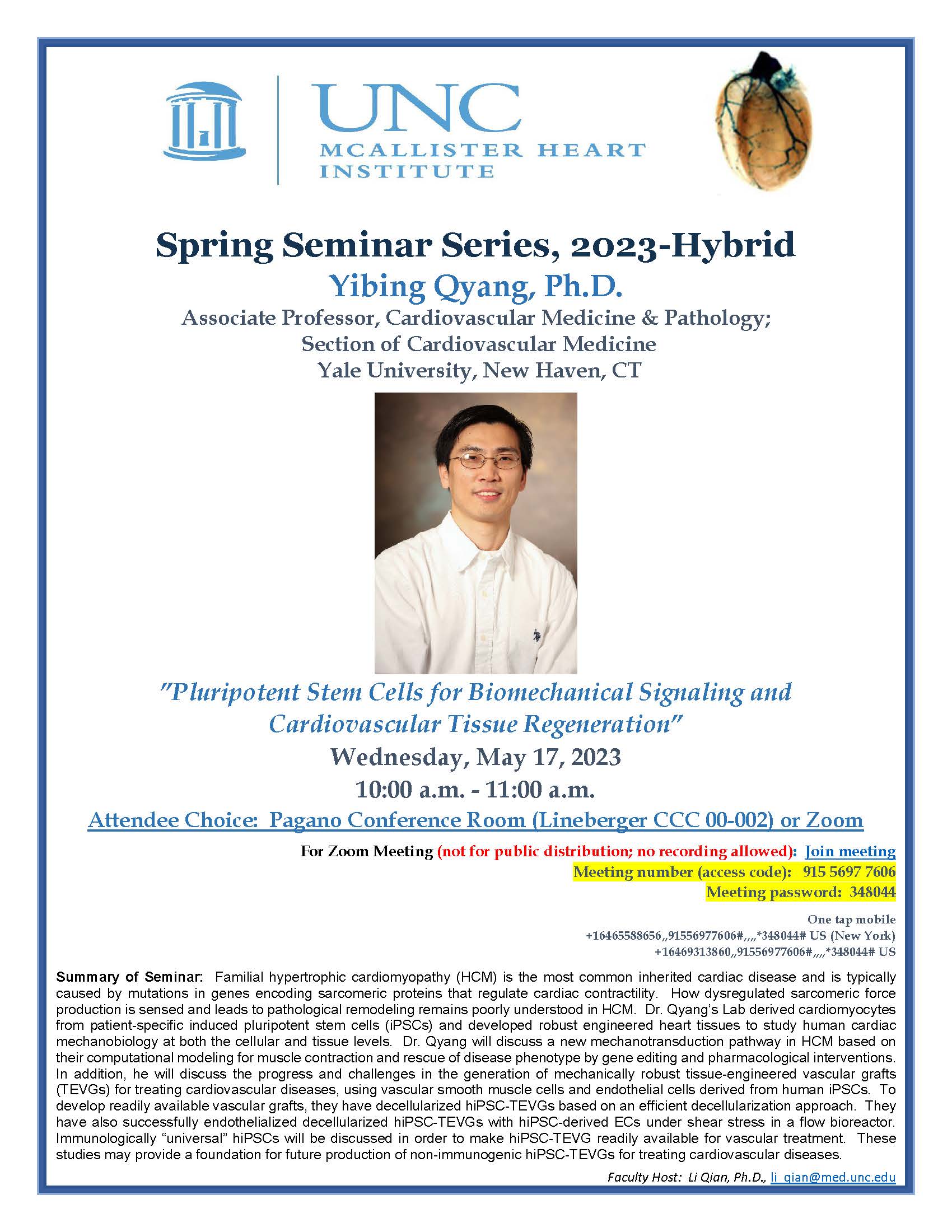Week of Events
Continuing Education: Occupational Therapy Ethics Event 2023
Continuing Education: Occupational Therapy Ethics Event 2023
The UNC Division of Occupational Science and Occupational Therapy is pleased that Dr. Micheal Sandbank will be presenting “Ethical Considerations for Enacting Evidence-Based Practice” at this year’s Ethics Event and a panel of practitioners will share their perspectives.We hope you’ll join us for this free hybrid event. When: Monday, May 15 at 7:15 p.m. Where: Bondurant Hall G100 … Read more
Diving Deeper into Oncology Emergencies: Neutropenic Fever, Tumor Lysis Syndrome, and Anthracycline induced Heart Failure – Advanced Practice Provider (UNC Lineberger Cancer Network)
Diving Deeper into Oncology Emergencies: Neutropenic Fever, Tumor Lysis Syndrome, and Anthracycline induced Heart Failure – Advanced Practice Provider (UNC Lineberger Cancer Network)
Advanced Practice Provider NCPD/CNE Live Webinar May 17 4:00–5:00 PM "4:00–5:00 PM" Laura Blanchard, MPAP, PA-C Taking a deeper dive into the most common oncologic emergencies facing oncology patients. We will discuss the clinical manifestations, diagnosis, treatment, and prevention of Neutropenic Fever, Tumor Lysis Syndrome, and Anthracycline InducedHeart Failure. These topics are a good refreshers for … Read more
MHI Seminar Series presents Yibing Qyang, Ph.D., Associate Professor, Cardiovascular Medicine & Pathology; Section of Cardiovascular Medicine, Yale University, New Haven, CT
MHI Seminar Series presents Yibing Qyang, Ph.D., Associate Professor, Cardiovascular Medicine & Pathology; Section of Cardiovascular Medicine, Yale University, New Haven, CT
Summary of Seminar: Familial hypertrophic cardiomyopathy (HCM) is the most common inherited cardiac disease and is typically caused by mutations in genes encoding sarcomeric proteins that regulate cardiac contractility. How dysregulated sarcomeric force production is sensed and leads to pathological remodeling remains poorly understood in HCM. Dr. Qyang’s Lab derived cardiomyocytes from patient-specific induced pluripotent … Read more

